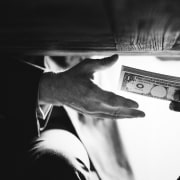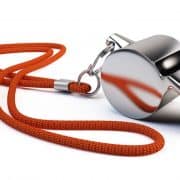|
Getting your Trinity Audio player ready...
|
By Kwazi Dlamini
Today, 23 June, is World Whistle-blower Day. It is another chance for us to acknowledge and appreciate the immense importance of blowing the whistle on corruption, and salute the courage of those who choose to come forward.
Because whistle-blowing is one of the most effective ways to detect and prevent corruption, malfeasance, and other wrongdoings, it is not enough to merely allow reporters to speak up – the practice of blowing the whistle on corruption must be actively encouraged, praised and rewarded, so that more people will share the vital crime-busting information in their possession.
Part 1 of our discussion of shareholder activism organisation Just Share’s (JS) recent whistle-blower report unpacks the flaws and gaps present in South Africa’s legal protection regime. Titled Whistle-blower protection in South Africa: Where to from here?, the report was released in May 2022, and it looks into the effectiveness of the legal frameworks that have been put in place to protect whistle-blowers. The second, and final part takes a broad look at the report’s various recommendations.
Ineffective whistle-blower protection in South Africa continues to be one of the main reasons corruption is not reported and effectively dealt with.
Common tactics used to deter whistle-blowers by those fingered in public and private sector malfeasance include threats, dismissal, and sometimes even death. The big question that most whistle-blowers ask before going forward with a report is: “How will I be protected?”
Threats and victimisation
As a social justice organisation that deals with whistle-blowers, Corruption Watch is confronted on a daily basis with the potential consequences these brave people face or may face because of their actions. We rely on the valuable testimony and evidence provided by whistle-blowers to inform our various interventions. Whistle-blowers have repeatedly told us about the threats – such as harassment, intimidation, violence, and in extreme cases, loss of life – that they face to their lives and livelihoods as a result of their disclosures.
The murder of Babita Deokaran sent shock waves throughout the country and highlighted the very real dangers of being a whistle-blower. Deokaran, a senior financial officer at the Gauteng Department of Health, was an important witness in a Special Investigating Unit investigation into corruption within the department.
Athol Williams, a former senior partner at Bain & Company, testified at the Zondo Commission about high-level corruption implicating Bain and other companies. Williams eventually left the country in fear of his life, believing that the government provided no support and protection to him.
While whistle-blower protection is embedded in legislation such as the Protected Disclosures Act and the Protection from Harassment Act, and is further supported in government and corporate policies and other materials, but these resources do little to deter the corrupt from victimising whistle-blowers. The brutality as a consequence of exposing corruption is at times too much to bear for some people, and they prefer to look the other way when wrong is being done. This is because of weakness within the legal frameworks that are meant to protect them in South Africa.
Flaws in protection regime
South Africa’s extensive legal regime for the protection of whistle-blowers, argues the JS report, looks firm enough on paper and compares well to other jurisdictions – but in reality is flawed, which puts whistle-blowers on the back foot from the start. This legal framework is based on labour law remedies that protect whistle-blowers should they be dismissed for speaking out, but these too are limited.
However, the report acknowledges that these shortcomings cannot be attributed only to the legislation; there are other complexities that affect this.
For a start, there are no consequences or penalties for those who choose to retaliate – or for those who fail in their legal obligations to protect whistle-blowers. And more often than not, the imbalance of power and resources between whistle-blowers and those they seek to expose means that without protection and free competent legal advice, whistle-blowers are often isolated and defeated.
While there is a host of civil society organisations and academic institutions which do their best to investigate disclosures, provide financial, legal, practical, and psychological support to whistle-blowers, and research whistle-blower experiences to make recommendations for strengthening protections, says the JS report, co-ordination between them could be better.
Furthermore, says JS executive director Tracey Davies, “It is simply impossible for civil society organisations, with their enormous resource constraints, to protect whistle-blowers on their own.”
Davies says that the level of protection and respect afforded to whistle-blowers are a reflection of society’s attitude to accountability and transparency. “The problems … mirror the most deeply rooted challenges facing the country, particularly the widespread lack of accountability or consequences for misconduct, as well as the pervasive sense of impunity with which the powerful carry out wrongdoing – as evidenced so dramatically in the reports of the Zondo Commission into State Capture.”
Both the public and private sectors should strive for a society in which people feel safe to speak out against wrongdoing, but this is not something that will happen overnight. However, says Davies, “there is scope for a private sector initiative to provide support for these initiatives’ efforts to level the playing field for whistle-blowers.”
The report also emphasises the need for extensive public awareness campaigns to address the stigma of whistle blowing and educate people to start seeing whistle-blowers as champions of democracy.
Look out for part 2 of this short series, which discusses the various recommendations which have been made over time.







